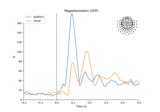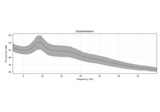mne.time_frequency.tfr_morlet#
- mne.time_frequency.tfr_morlet(inst, freqs, n_cycles, use_fft=False, return_itc=True, decim=1, n_jobs=1, picks=None, zero_mean=True, average=True, output='power', verbose=None)[source]#
Compute Time-Frequency Representation (TFR) using Morlet wavelets.
Same computation as
tfr_array_morlet, but operates onEpochsobjects instead ofNumPy arrays.- Parameters
- inst
Epochs|Evoked The epochs or evoked object.
- freqs
ndarray, shape (n_freqs,) The frequencies in Hz.
- n_cycles
float|ndarray, shape (n_freqs,) The number of cycles globally or for each frequency.
- use_fftbool, default
False The fft based convolution or not.
- return_itcbool, default
True Return inter-trial coherence (ITC) as well as averaged power. Must be
Falsefor evoked data.- decim
int|slice, default 1 To reduce memory usage, decimation factor after time-frequency decomposition. If
int, returns tfr[…, ::decim]. Ifslice, returns tfr[…, decim].Note
Decimation may create aliasing artifacts.
- n_jobs
int The number of jobs to run in parallel (default
1). If-1, it is set to the number of CPU cores. Requires thejoblibpackage.- picksarray-like of
int|None, defaultNone The indices of the channels to decompose. If None, all available good data channels are decomposed.
- zero_meanbool, default
True Make sure the wavelet has a mean of zero.
New in version 0.13.0.
- averagebool, default
True If
Falsereturn anEpochsTFRcontaining separate TFRs for each epoch. IfTruereturn anAverageTFRcontaining the average of all TFRs across epochs.Note
Using
average=Trueis functionally equivalent to usingaverage=Falsefollowed byEpochsTFR.average(), but is more memory efficient.New in version 0.13.0.
- output
str Can be “power” (default) or “complex”. If “complex”, then average must be False.
New in version 0.15.0.
- verbosebool |
str|int|None Control verbosity of the logging output. If
None, use the default verbosity level. See the logging documentation andmne.verbose()for details. Should only be passed as a keyword argument.
- inst
- Returns
- power
AverageTFR|EpochsTFR The averaged or single-trial power.
- itc
AverageTFR|EpochsTFR The inter-trial coherence (ITC). Only returned if return_itc is True.
- power
Examples using mne.time_frequency.tfr_morlet#
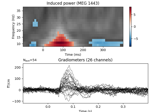
Non-parametric 1 sample cluster statistic on single trial power
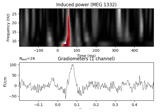
Non-parametric between conditions cluster statistic on single trial power
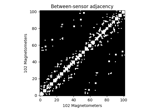
Spatiotemporal permutation F-test on full sensor data
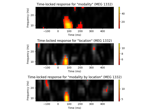
Mass-univariate twoway repeated measures ANOVA on single trial power
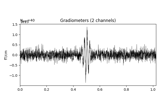
Time-frequency on simulated data (Multitaper vs. Morlet vs. Stockwell)
